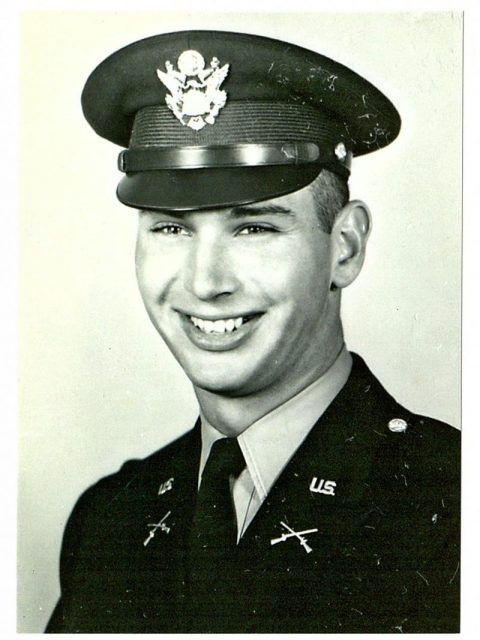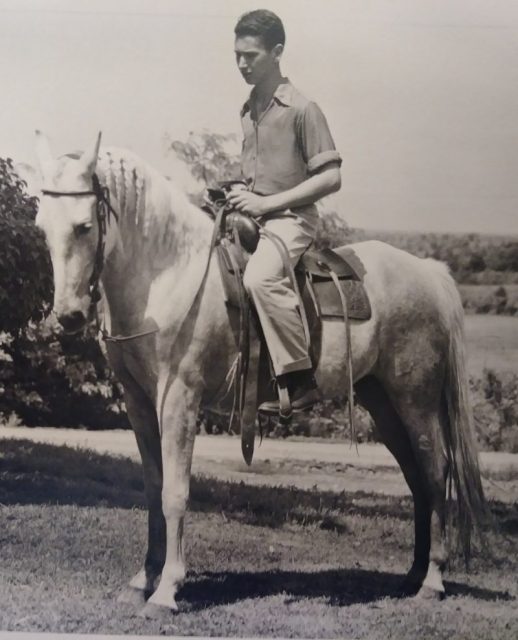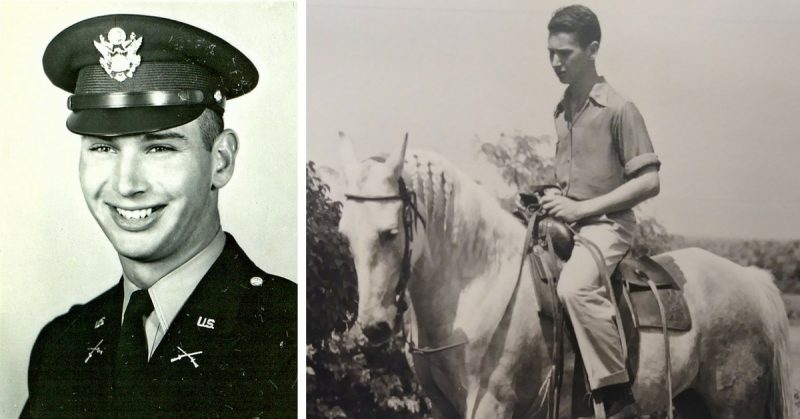War History online proudly presents this Guest Piece from Jeremy P. Ämick, who is a military historian and writes on behalf of the Silver Star Families of America.
According to a 2016 fact sheet published by the U.S. Department of Veterans Affairs, the United States suffered a staggering 33,739 “Battle Deaths” during the Korean War. Among those losses was a young man from Moniteau County, Missouri, who began his service as an enlisted soldier in the U.S. Army but later achieved his goal of becoming an officer in the infantry.
“Jack enlisted in 1948 after graduating from California High School,” said Judy Campbell, the late veteran’s sister and only sibling. “A couple of his buddies joined at the same time, so I believe that is why he chose to go in the Army.”
As Campbell explained, her brother was seven years her elder and “treated her like a little princess.” She added, “I remember that I didn’t want him to leave for the service but it wouldn’t do me any good to argue about it—he had his mind made up.”
The former Boy Scout began his military service by completing his basic training at Ft. Knox, Kentucky in late 1948. From there, he was assigned to a unit at Ft. Devens, Massachussetts, where he remained for most of 1949.
“While he was in the service, he was around a group of guys who decided to become officers and they provided the encouragement for Jack to do it as well,” said Campbell.

According to the July 15, 1951 edition of the Sedalia Democrat, Gainer traveled to Ft. Riley, Kansas to attend officer candidate school and “received his commission as a second lieutenant” on October 5, 1950. He then traveled to Ft. Benning, Georgia for three months of training as an infantry officer.
In March 1951, Lt. Gainer was able to return home for three weeks of leave before traveling to Kansas City to board a plane bound for Camp Stoneman in California. After a brief layover on the West Coast, he was aboard a ship sailing for Yokohama, Japan, from where he would soon embark upon his final military assignment.
In mid-April, Gainer arrived in Korea to command a platoon within the 32nd Infantry Regiment (IR) of the 7th Infantry Division. Elements of the regiment had been in Korea since September 1951, serving as “part of the 7th Infantry and 1st Marine Divisions (that) slammed ashore at Inchon and battered its way inland toward Seoul,” noted a small book published by the first battalion of the 32nd IR during the war.
The division was already full of veterans of some of the most hellish episodes of the war—to include the bloody campaign in the Chosin Reservoir—by the time Lt. Gainer arrived in April 1951; however, that did not mean that the dangers to personal safety had in any way diminished.
The freshly trained infantry officer joined the regiment as they fought to push the North Korean and Chinese forces north of the 38th parallel. Battling on the front lines of the war, the 7th Infantry Division continued to incur heavy casualties, including the young infantry officer from Mid-Missouri.

“Jack was killed on June 6 (1951) when he was shot through the stomach by a sniper … he had only been overseas for a month,” said Campbell. “It is our understanding that he was killed in the area of Chuncheon, Korea, based upon letters that our family received after this death,” she added.
Though many years have passed since the death of her brother, Campbell still clearly recalls the dispiriting moment when their family first learned of his loss through the delivery of a Western Union telegram.
“On July 5 (1951),” said Campbell, while pointing at the original copy of the telegram,” the local cab driver, Casey Jones, picked up the telegram at the local train depot and parked across the street from my grandmother’s house, where we were living at the time.” Pausing, she added, “I saw him coming and knew it was about Jack.”
The body of the 20-year-old Gainer was first laid to rest in a cemetery in Korea, but his remains were exhumed several months later and returned to the United States in December 1951 along with the remains of 12 fellow Missourians killed during the war.
During a memorial service held at the California Christian Church, reported the Sedalia Democrat on January 13, 1952, Gainer’s mother was presented a Silver Star Medal posthumously awarded to her son. The presentation, the newspaper further explained, was made by Lt. Col. William Harvey—a former resident of California and friend of the family who was at the time assigned to Ft. Leavenworth, Kansas.
Gainer was the first of only a handful of Moniteau County residents to lose their lives in the Korean War, and was later interred in the California City Cemetery. Despite the many decades that have passed since her brother’s death, Campbell continues to embrace the memories of Jack’s mild-mannered and pleasant demeanor.
“We were really very close despite the seven-year difference in our ages,” said Campbell. “He treated me wonderfully and I could do no wrong in his eyes; that’s the kind of brother that he was.”
Pausing, she added, “Many years after the war, I believe it was in the mid-90s, we were contacted by Kenneth Funke—who was one of Jack’s sergeants and ended up earning a Bronze Star for going in to retrieve his body. I remember him talking about what a great guy Jack was and how everybody in the platoon really liked him, which was truly an honor to his memory.”
